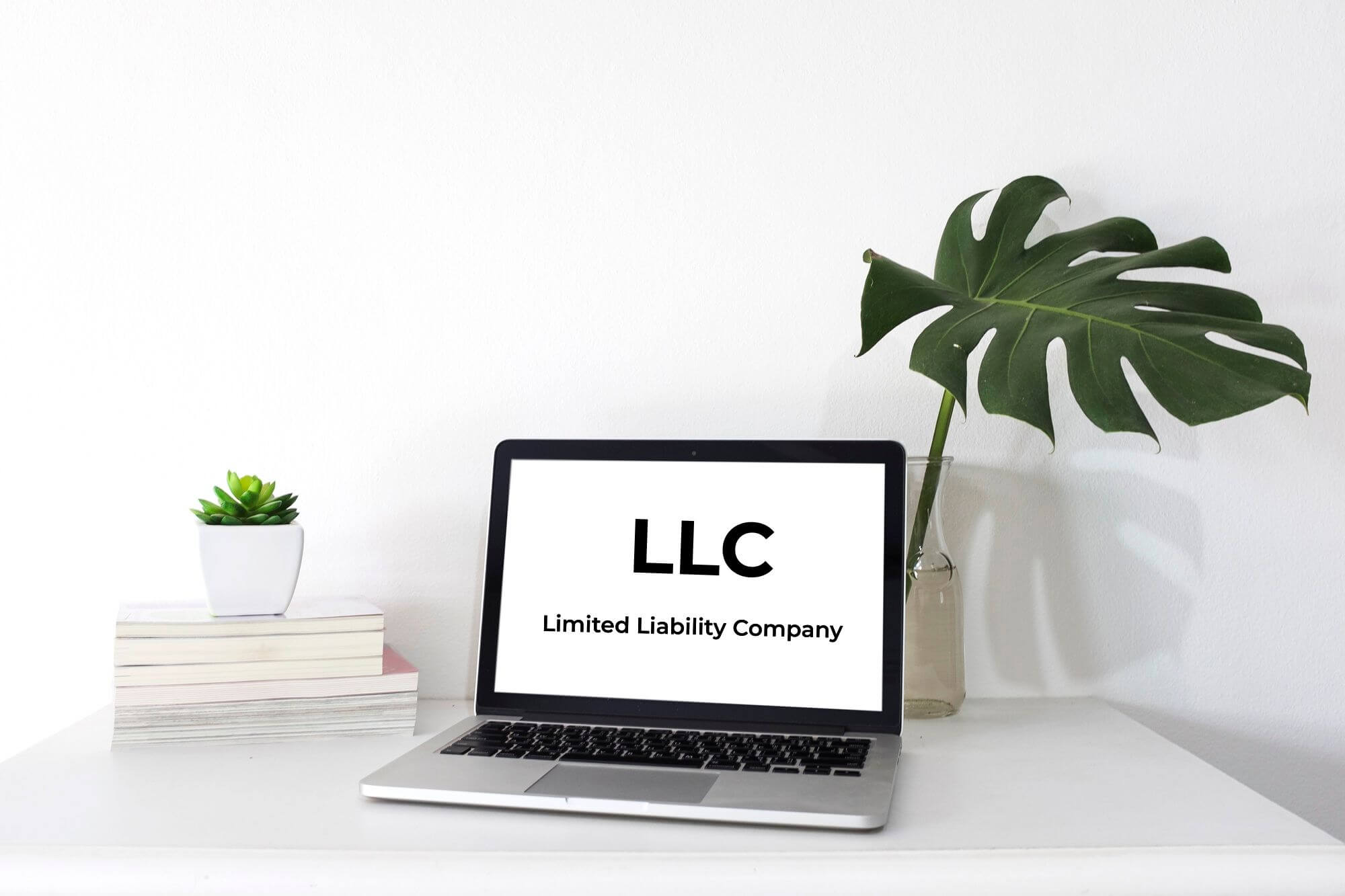Ready to transform your passion into a successful venture? Starting an LLC could be your golden ticket. It shields your personal assets while offering the perks of a formal business structure. But where do you begin?
Let’s explore the steps to set up your LLC, from picking a stellar name to handling the paperwork. This guide will help you grow your business confidently. Let’s get started!
>> Visit Northwest to Start Your LLC >>
How to Start an LLC in 7 Simple Steps
Many small business owners opt to form an LLC due to its liability protection. An LLC, or Limited Liability Company, is distinct from its owners (called members), meaning they aren’t personally on the hook for business debts.
To create an LLC, you need to file paperwork in the state where your business operates. Each state has unique regulations, yet the steps to establish your LLC are consistent across the board. Let’s explore these essential steps to get your LLC up and running, no matter where you are.
Step 1: Choose and Reserve a Name for Your LLC
Most states don’t allow two businesses to share the same name. So, you can’t coexist with “Joe’s Donuts, LLC” and “Joe’s Donuts, Inc.” even if they’re in different cities. States also often restrict certain words, like “bank,” from being used in business names.
You can search online to see if your desired LLC name is available in your state. It’s smart to check this before you file any paperwork. Besides state restrictions, look around your area to see if similar businesses are using the name you want. Picking a unique name helps avoid confusion and potential trademark issues. Plus, it’s a good idea to check if a matching domain name is available.
If your chosen LLC name is free but you’re not ready to file, reserve it. Most states let you do this by filing a form and paying a small fee. The reservation period and fees can vary, so check your state’s specific rules.
Step 2: Choose a Registered Agent
Nearly every state mandates that LLCs appoint a registered agent, sometimes called a statutory agent. This person agrees to accept legal documents, such as lawsuits and subpoenas, on behalf of the LLC and then forward them to the right individual within the company.
Typically, states permit any resident over 18 years old to be a registered agent, including a member or officer of the LLC. You can hire companies like Tailor Brand or Northwest Registered Agent to handle this role for a fee.
Step 3: File Organizational Paperwork with the State
Every state has its unique form and procedure for setting up an LLC. You’ll need to file articles of organization, which typically include:
- The LLC’s name and address
- The duration of its existence, if it’s not perpetual
- The name and address of the registered agent
- The purpose of forming the LLC
The paperwork must usually be signed by the person forming the LLC. In some states, the registered agent must also sign.
In most states, you file these documents with the secretary of state. However, some states have different departments that manage business filings. There’s always a filing fee, but the cost varies by state.
Step 4: Prepare an LLC Operating Agreement
An LLC operating agreement is a crucial document outlining how your LLC will function. It details the ownership stakes and voting rights of the members, how profits and losses will be shared, how meetings will be conducted, how the business will be managed, what happens if a member dies or exits the business, and how the company will be dissolved if it shuts down.
While you usually don’t file the operating agreement with the state, and your state may not mandate it, having one is vital. It helps business owners clearly define their rights and responsibilities, reducing the risk of future disputes.
Step 5: Determine the Licenses Needed
After your LLC’s formation documents are filed and approved, the state will issue a certificate or another document confirming your LLC’s existence.
With this certificate in hand, you can identify any specific permits or licenses your business might need, such as zoning permits or liquor licenses. This step ensures your business operates legally and compliantly from the start.
Step 6: Get an EIN
The next step is to obtain your Employer Identification Number, or EIN. Think of your EIN as a Social Security Number for your business. It’s unique to your company and essential for various business activities, including banking, taxes, and hiring employees. Getting an EIN ensures your business operates smoothly and meets legal requirements.
Step 7: Register to Do Business in Other States (Optional)
If your LLC operates in multiple states, you should register in each one. This process involves submitting paperwork similar to what you filed when forming your LLC initially. You’ll also need a registered agent in each state where your business is authorized.
An LLC is a popular and versatile choice for many small business owners. LLCs are straightforward to set up and maintain in most states.
However, completing the paperwork correctly and having a solid operating agreement outlining the members’ rights and responsibilities is crucial. This ensures smooth operation and minimizes potential conflicts.
Important Steps to Follow After Forming an LLC
File Annual Reports
After you’ve been trading for a tax year, you’ll need to file an annual report, also called a “statement of information.” This report gives your state crucial updates about your business, including any changes since your last filing period.
Filing this report helps the state inform you about new legal requirements, such as additional licenses you might need.
It’s wise to set up a system to record all your business dealings. This way, when deadlines approach, you won’t have to scramble for paperwork. Staying organized can save you a lot of stress and time.
What Should You Include in Your Annual Report?
Include your LLC’s name, office address, registered agent’s details (if applicable), and the LLC number issued by your secretary of state when filing. Each state has its own specific laws and regulations for what must be included in an annual report.
Each state has its own LLC laws, regulations, and specific requirements for annual reports. Annual reports will include:
- Your principal business address
- The names and addresses of your members and managers
- Significant identification numbers for your business, such as your state entity number
- The purpose of your business
- A list of authorized signatories
- Your registered agent’s information
- How to file your annual report
You can typically file your annual report online through your state’s website. As expected, there will be a fee, which varies by state. For example, it’s $50 in Mississippi but can go up to $500 in Massachusetts.
What Happens if You Don’t File an Annual Report for Your LLC?
Filing your annual report on time might seem a mere formality, but it’s crucial. Missing the deadline can have serious consequences. Some states impose late fees, penalties, and additional taxes. In more severe cases, your LLC could even be dissolved.
>> Start Your LLC With Northwest >>
Open a Business Bank Account
As an LLC owner, neither state nor federal law mandates having a separate business account. However, there are several compelling reasons to do so:
- Protect Your Liability: Separating your finances from your business helps maintain your limited liability protection. Mixing funds can jeopardize this protection.
- Professionalism: A business account lends credibility and professionalism to your LLC.
- Clear Financial Picture: Separating business and personal accounts makes it easier to understand one’s finances.
- Tax Benefits: It helps your accountant distinguish between business and personal expenses, simplifying your end-of-year tax return.
- Expense Management: Monitoring your business expenses becomes more straightforward, ensuring consistent cash flow.
Obtain the Required Business Licenses and Permits
In most states, forming an LLC doesn’t require a business license. However, you will need a business license and possibly other permits to ensure your LLC operates legally and complies with state laws.
License and permit requirements vary by state. To find out what you need in your LLC’s registered state, visit the SBA website. Often, you can apply for these licenses and permits online.
Types of licenses and permits include:
- General business license
- Sales tax registration
- Weights and measures registration
- Professional/occupational licenses
- Health inspection certification
- Alarm permit
- Unemployment and worker’s compensation registration
How to Obtain Business Licenses and Permits?
First, choose the state where you’ll operate, followed by the specific city and county. Then, visit the Small Business Administration website to find information on local regulations.
Make sure you have your Employer Identification Number (EIN). If you don’t, apply for one on the Internal Revenue Service website.
Next, find your business code using one of the many available websites. Also, check if you need any additional permits besides a business license. Have a credit card ready to pay the filing fee, which can range from $50 to $500.
>> Consider Northwest to Start Your LLC >>
Learn More About Tax Requirements
Hiring an experienced accountant is one of the best investments when starting an LLC. An accountant knowledgeable about running LLCs can guide you, especially with taxes.
Your tax method depends on your business structure. You can be taxed as a Sole Proprietorship (for single-member LLCs), a Partnership (for multi-member LLCs), or you might opt for S-Corp status.
Accountants help ensure you comply with federal and state tax laws, filing returns accurately and on time. They can save you significant money by applying legal tax reduction strategies that less experienced accountants might miss.
You can also reduce your accounting bills by learning to keep your debit and credit books organized.
LLC Tax Filing Tips
First, identify and use any tax deductions or credits your LLC qualifies for. Next, review upcoming business tax deadlines and add them to your calendar to stay on top of them. Hiring a certified accountant or tax professional to handle your taxes can also be smart.
Third, research and understand your state’s specific tax requirements. The forms needed for your LLC taxes depend on three factors:
- Whether your LLC has one member or multiple members
- If you opt for the default (pass-through) tax status or choose a corporate tax status
- Whether your LLC has employees
Get Business Insurance
Business insurance safeguards you against unexpected incidents like fire, water damage, stock and premise damage, missed deadlines, or client data breaches.
It also covers common risks such as slip-and-fall injuries, employee car accidents, or work-related injuries. Some policies include coverage for supply breakdowns, business interruption compensation, and legal costs.
“Public liability insurance” is essential if a customer injures themselves on your business property.
Some states mandate additional insurance for LLCs, while others leave it to your discretion. If you have employees, you must carry workers’ compensation, unemployment, and disability insurance. Check your state’s website to find the specific insurance requirements for your business.
>> Visit Northwest to Start Your LLC >>
Best LLC Formation Services
Registering a business can feel complex, time-consuming, and overwhelming. With numerous legal and administrative tasks, navigating this process alone can be challenging for entrepreneurs.
Luckily, many online business registration services offer comprehensive solutions to assist entrepreneurs and small business owners start and manage their companies. In this blog post, we’ll explore some top business registration services and offer guidance on selecting the right one for your business needs.
Northwest Registered Agent does more than just file your LLC paperwork. They offer personalized support and a range of business services, including registered agent service, compliance management, and document filing.
Focusing on LLC formation, they provide ongoing assistance and resources to ensure your business remains compliant and flourishes, making them a dependable partner for your LLC requirements.
Tailor Brands is an online service that helps businesses craft a professional and cohesive brand identity. They offer various branding packages, including logos, business cards, and social media branding. Tailor Brands provides design tools and resources, enabling businesses to create and customize their branded assets.
ZenBusiness is an online LLC formation service designed to help entrepreneurs and small business owners start and grow their companies. They offer affordable and comprehensive LLC formation packages, which include registered agent services, annual report filing, and more.
Additionally, ZenBusiness provides ongoing support and resources to ensure businesses stay compliant and thrive.
BusinessRocket LLC is a consulting firm helping entrepreneurs and businesses incorporate their companies. They offer a range of services for new businesses, including:
- LLC name clearance
- Preparation and filing of articles of organization
- Consultation services
- Compliance analysis and guard alerts
- Lifetime customer support
BusinessRocket also provides legal assistance, tax compliance, and business entity registration. They aim to offer competitive prices and even free consultation services for aspiring LLC entrepreneurs.
Swyft Filings is an LLC formation service known for its quick and straightforward process. They offer comprehensive services, including incorporation, compliance, and registered agent services.
Swyft Filings provides personalized support to help businesses navigate the LLC formation process and comply with state and federal regulations.
Bizee offers fast and affordable LLC formation services. Their packages include registered agent services, compliance management, and document filing. Bizee’s platform is user-friendly and streamlined, simplifying the LLC formation process.
They also provide ongoing support and resources to help businesses remain compliant and succeed. With a focus on affordability and convenience, Bizee is an excellent choice for LLC formation services.
Why Form an LLC?
LLCs are popular for entrepreneurs and groups looking to launch a new business venture. Here are some common reasons why people opt to form LLCs:
- Low Startup Cost: Establishing and running an LLC is often cheaper than a corporation. In some states, the fees are less than $100, making it an ideal business structure for those wanting to start a company without significant initial expenses.
- Tax Benefits: LLCs can be treated as pass-through entities, allowing business income to be claimed on personal taxes while keeping business assets separate. This helps avoid double taxation. LLCs can also be taxed as sole proprietorships, partnerships, C-corporations, or S-corporations.
- Liability Protection: LLCs provide liability protection to members and owners. The business’s assets are distinct from personal assets, offering protection if the company is sued.
Starting an LLC isn’t overly complex. Various companies can assist with the paperwork and handle annual obligations like filing annual reports.
Types of LLCs to Consider
When deciding how to start an LLC, understand the different LLCs available. Choosing the right structure ensures your business model aligns with your company’s nature and operational goals. Here are the main LLC structures to consider:
- Single-Member LLC: Owned and operated by one person, offering tax benefits and liability protection similar to a sole proprietorship but with added safeguards.
- Multi-Member LLC: Includes more than one member. These can be manager-managed or member-managed, providing flexibility in management and operations.
- L3C (Low-Profit Liability Company): This type of company bridges the gap between nonprofit and for-profit LLCs, focusing primarily on a social mission rather than earnings.
- Series LLC: A tiered structure where a top-level LLC owns a series of lower-tier LLCs. Each operates independently with separate assets, providing enhanced liability protection and organizational flexibility.
- PLLC (Professional Limited Liability Company): Available only to certain licensed professionals, such as doctors or lawyers, offering specialized liability protection.
- Restricted LLC: Not taxed during the first ten years and cannot be distributed to members during this period. This status must be stated in the organization’s articles.
- Anonymous LLC: Lacks a legal designation but is characterized by the state not publicly identifying its owners. This option is useful for privacy, and it is currently available only in Delaware, Nevada, New Mexico, and Wyoming.
Selecting the right type of LLC depends on your business goals, operational needs, and the liability protection and privacy level you require.
How to Start an LLC – Frequently Asked Questions
Bottom Line on How to Start an LLC
Feeling anxious about starting an LLC is normal. It might seem like diving into a legal maze. But now that you know the steps, nothing is holding you back. Follow the guide step-by-step.
If you hit a snag or need more help, return to this guide, ask other local business owners, or consider using an LLC formation service like Northwest. You’ll find support every step of the way.
>> Start Your LLC With Northwest >>
 Sections of this topic
Sections of this topic






















